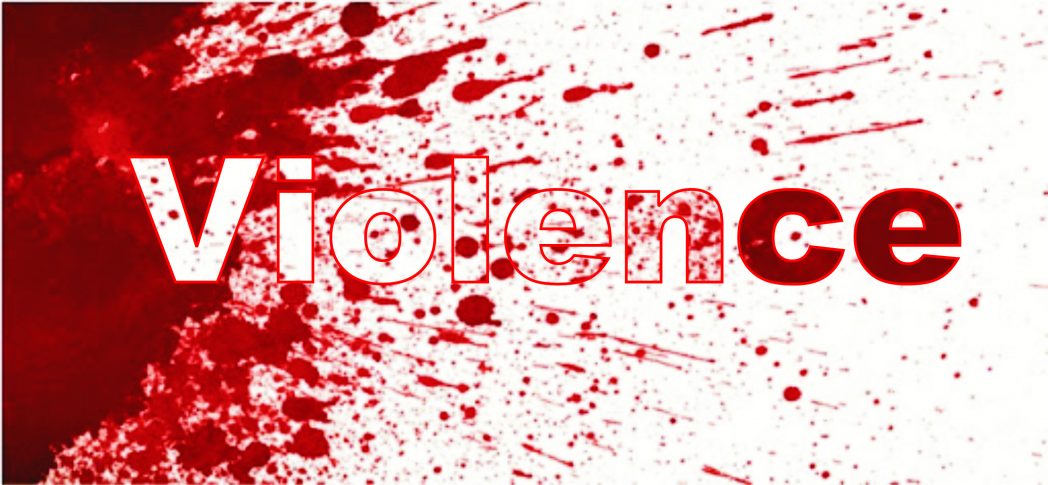Opinion
Curbing Violence In Our Society

The Oxford Advanced Learners Dictionary defined violence as “a behaviour involving physical force intended to hurt, damage or kill someone or something”.
The above definition describes what goes on in our society on daily basis. Terrorism, robbery kidnapping and all kinds of social vices have characterized our society. Youths are no longer concerned with creativity and thinking about the future. They no longer worry about dreaming great dreams and aspiring after great minds and role models. What they are after is criminality.
Even our higher institutions are not spared. They are culpable of all kinds of negative behaviour.
In those days, students in higher institutions were regarded as future leaders with a desire for excellence. Many of them hardly involved in crimes and were considered as epitome of morality. But today, that has changed completely. Students now abandon the purpose of their stay in the various schools and engage in cult activities that usually unstill in them the tendency to commit crime. They have gone dangerously far to be involved in kidnapping, assassinations, evil theft and all manner of crimes.
The question many people readily ask is what has led to this abysmal state of degeneration of our youths? Why do youths commit crimes without qualms? Why do our students, particularly those in higher institutions not interested in studying anymore but rather take to crime as a way of life?
The answer to the above questions are not far-fetched. It is simply greed, the love for money and a breakdown of moral values.
One good thing education does for a society is the preservation of moral values and the promotion of good conduct. When education cannot guarantee the existence of these virtues, the result is what we have at hand.
What then are the solutions to these problems that have the potentiality of ravaging our society? The first step is the improvement of our education system, I mean the quality of education we offer our children.
As I said earlier, in those good days, crime rate was low largely because education then was qualitative. But today, I think the high crime rate is attributable to the low quality of education in the country. Therefore, the government has to focus properly on this sector and invest massively in it.
Another solution to violence in our society is what we all know about but have demonstrated weak will to execute, especially the government. That is, the creation of jobs for our youths. There is no country where joblessness does not result in higher crime rate. And so, Nigeria cannot be an exception. if our government does not create jobs, it risks being plagued by crimes and the youths are the most vulnerable group in this respect. One way jobs can be created is for the government to gradually hand over the economy to the private sector to run while it concentrates on its traditional role of regulating the economy.
Another solution to violence is good governance. This point is being emphasised in virtually every discussion on this subject. When governance is free of corruption and deemphasises materialism, its effect will show positively on the society. Our nation is too corrupt and about 90 percent of the corruption is perpetrated by those in power. Our leaders must show good examples. This would impact positively on youths and reduce the crave for illegal accumulation of wealth.
Youths should be engaged in various programmes to be fashioned by the government and voluntary bodies in order to divert their attention from crime and other forms of wrong-doing. Football competitions and other sports tournaments could be organised for our youths so that their minds could be engaged.
Parents have a huge role to play in all these. The Bible says in Proverbs 22:6: “Train up a child in the way he should go and he will not depart from it”. I think this is a big challenge to parents. Parents ought to play their God-given roles effectively to train their children while they are young.
I believe everyone should be involved in checking violence in our society. The responsibility of doing this must not be left to the government alone. Everyone must be involved lest it may consume us.
Siko wrote from Port Harcourt.
Furotubo Siko
Opinion
NDDC: Time To Illuminate Homes

Opinion
When Democracy Becomes Too Expensive

Opinion
Righteous Leadership Still Thrives

-

 News5 days ago
News5 days agoDisu Takes Over As New IGP …Declares Total War On Corruption, Impunity
-
Politics2 days ago
2027: NIGERIANS FAULT INEC ON DIGITAL MEMBERSHIP REGISTER DIRECTIVE
-

 Environment2 days ago
Environment2 days agoLAWMA Director Says Sweeping Reforms Have Improved Waste Collection
-
Politics2 days ago
LP Crisis: Ex-NWC Member Dumps Dumps Abure Faction
-

 Sports2 days ago
Sports2 days agoAbia Not Sure To Secure continental Ticket
-

 Politics2 days ago
Politics2 days agoUmahi Dismisses Allegations On Social Media, Insists On Projects Delivery
-

 Transport2 days ago
Transport2 days agoFAAN Announces Pick-Up Points for Go-Cashless Cards
-
Sports2 days ago
La Liga: Yamal Records First Career Hat-trick

